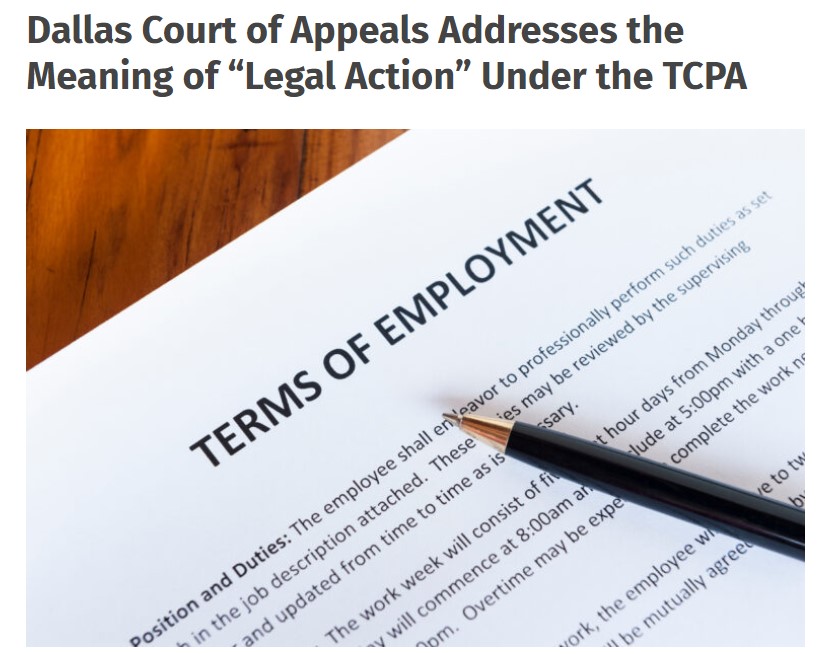In Jones v. Frisco Fertility Center, PLLC, No. 05-21-00008-CV, 2022 WL 17248837 (Tex. App.—Dallas Nov. 28, 2022, pet. filed), the Dallas Court of Appeals addressed whether plaintiff Frisco Fertility Center’s (FFC) request for an injunction against its former employee Dr. Jones qualified as a legal action under the Texas Citizens Participation Act (TCPA). Specifically, the court of appeals addressed the meaning of the phrase “legal action” under the TCPA and whether a request for injunctive relief can serve as a separate legal action under the TCPA when the request is only a component of the relief sought in an action pending in arbitration.
FFC sued its former employee Dr. Jones, accusing her of misappropriation of trade secrets, violating the Texas Uniform Trade Secrets Act (TUTSA), breaching her employment contracts, and violating her fiduciary duty. When Dr. Jones joined FFC, she signed an employment contract agreeing to follow any rules and regulations communicated by FFC either in writing or orally, as well as a confidentiality agreement and an agreement not to solicit clients away from FFC during her employment and for a period of one year after her employment with FFC ended. The confidentiality agreement further provided that any breach of the confidentiality clause would entitle FFC to secure an injunction that would require Dr. Jones to abide by the provisions of the employment agreement.
FFC alleged that Dr. Jones, during and after her time at FFC, improperly diverted a client to competitors, ignored marketing requirements, started a rival company, and stole confidential information like client lists and pricing data. As a result of Dr. Jones’s actions, FFC issued a demand for arbitration under the terms of the employment contract. However, the two parties were unable to reach an agreement on the terms of a temporary injunction under the American Arbitration Association’s (AAA) emergency rules. FFC subsequently sought legal intervention from the district court on the issue, petitioning the court for a temporary injunction while the matter was pending arbitration. Dr. Jones responded to FFC’s petition with a motion to dismiss under the TCPA.
The trial court granted the temporary injunction in favor of FFC and denied Dr. Jones’s TCPA motion. On appeal, Dr. Jones argued that denying her motion for dismissal under the TCPA was erroneous.
Under the TCPA, the trial court must dismiss the legal action “if the moving party demonstrates that the legal action is based on or is in response to the party’s exercise of: (A) the right of free speech; (B) the right to petition; or (C) the right of association. FFC argued that because its underlying claims against Dr. Jones were in arbitration, the TCPA’s definition of legal action, which specifically excludes alternative dispute resolution proceedings, means there was no legal action that could have been dismissed under the TCPA and that, in any event, FFC’s request for injunctive relief could not serve as a separate legal action for TCPA purposes when the request was nothing more than a component of the relief sought as a result of the action pending in arbitration.
The court agreed with FFC, holding that that FFC’s claims were in arbitration and its suit was filed for the limited purpose of resolving the Plaintiff’s request for temporary injunctive relief. To this point, the court noted that Dr. Jones had not disputed that FFC’s petition for injunctive relief was ancillary to and in aid of arbitration arising from the fact that the parties could not agree to the use of AAA’s rules for injunctive relief. In other words, FFC’s petition was not a standalone suit, disconnected from FFC’s substantive, underlying claims. As such, the court of appeals concluded that Dr. Jones’s request for injunctive relief was was merely a request for a remedy and not a separate legal action subject to challenge under the TCPA.


